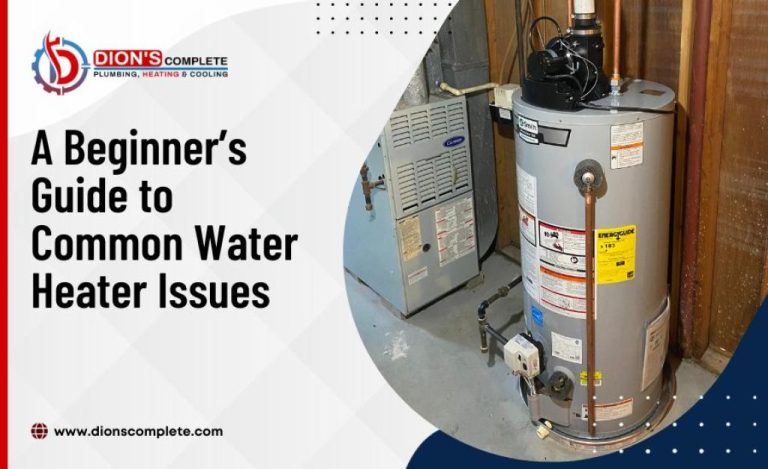
A Beginner’s Guide to Common Water Heater Issues
Get expert tips on addressing water heater issues. Contact Dion’s Complete Plumbing, Heating & Cooling at (734) 352-9736 today for professional help.
Need Financing Assistance?
When it comes to ensuring the comfort and well-being of your home, having a reliable HVAC and plumbing company is essential. HVAC and plumbing systems play a crucial role in maintaining a comfortable and healthy living environment. In Brighton, MI, residents understand the importance of having a trusted company to rely on for their HVAC and plumbing needs.
Emergencies can happen at any time. Our team understands the urgency of such situations and provides timely response and emergency services. We prioritize your comfort and safety, ensuring that any issues with your HVAC or plumbing systems are addressed promptly. From routine maintenance to emergency repairs, we’re here to help.
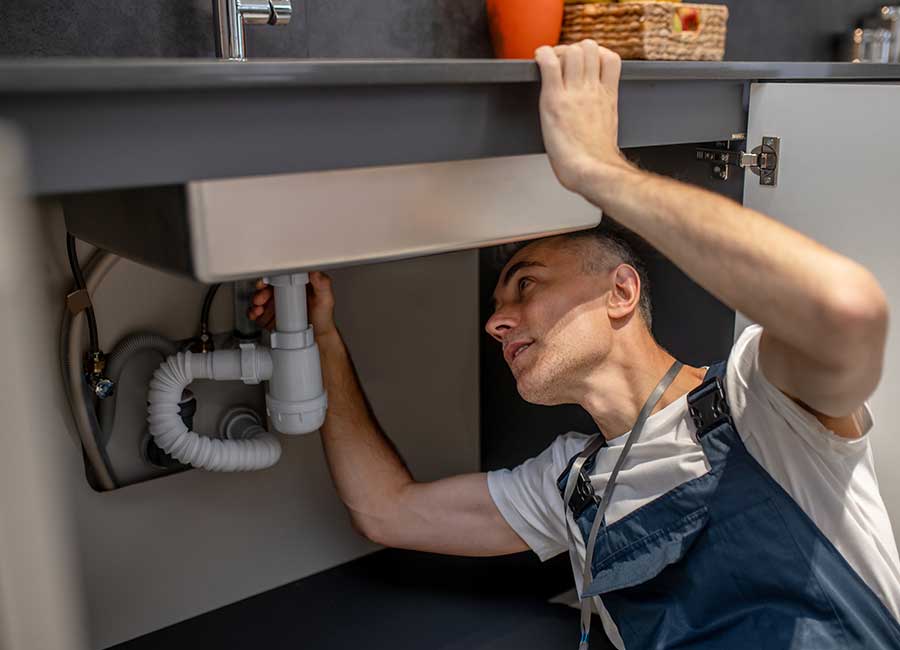
When you hire Dion’s Complete Plumbing, Heating & Cooling, you can expect professional and reliable service from our team of experts. We prioritize your satisfaction and comfort, and we’ll work hard to ensure that your plumbing, heating, and cooling needs are met with the utmost care and attention. Our technicians are fully licensed and trained to handle a variety of services, including installations, repairs, and maintenance. We also offer emergency services for those unexpected situations that require immediate attention. You can trust us to provide transparent pricing and clear communication throughout the entire process. At Dion’s Complete Plumbing, Heating & Cooling, we’re committed to exceeding your expectations and providing the highest level of service possible.
Dion’s Complete Plumbing, Heating & Cooling are your trustworthy contractors for all your plumbing and HVAC needs. Our team understands the importance of having a reliable and trustworthy service provider to handle the comfort and functionality of your home. That’s why we prioritize transparency, honesty, and open communication with our clients. We believe that building trust is essential to establishing long-lasting relationships with our customers. We provide upfront pricing, clear communication, and honest recommendations for all our services, so you can feel confident in the work we do. Our technicians are fully licensed and insured, and they undergo continuous training to stay up-to-date with the latest industry standards and technologies.
Dion’s Complete Plumbing, Heating & Cooling understands the importance of affordable pricing for our customers. We believe that everyone deserves access to high-quality plumbing and HVAC services without breaking the bank. That’s why we offer competitive pricing and flexible payment options to fit your budget. We also provide upfront pricing and clear communication, so there are no surprises when it comes to the cost of our services. Our team of experts will work with you to find the most cost-effective solutions for your plumbing and HVAC needs, without compromising on the quality of the work. We also offer various specials and promotions throughout the year to help you save even more.
Being reliable is one of the most important qualities a business can have. Dion’s Complete Plumbing, Heating & Cooling understands that our customers depend on us to provide timely, efficient, and high-quality services. We take pride in our reputation for reliability, and we work hard every day to maintain it. Our skilled professionals are dedicated to ensuring that every job is done right the first time, and we always strive to exceed our customers’ expectations. Whether you need plumbing, heating, or cooling services, you can count on us to be there when you need us. Trust Dion’s Complete Plumbing, Heating & Cooling for all your home comfort needs.
We take great pride in providing plumbing repairs and installations that are done right, every time. We understand how important it is to have a functioning plumbing system in your home, which is why we are committed to delivering top-quality services to our customers in Brighton, MI, and the surrounding areas. Our team of experienced plumbers has the skills and expertise to handle any plumbing issue, from minor repairs to major installations. We use the latest tools and techniques to ensure that every job is completed efficiently and effectively. When you choose Dion’s Complete Plumbing, Heating & Cooling, you can rest assured that your plumbing needs will be taken care of promptly and professionally.
Don’t let the cold nights get you down. Dion’s Complete Plumbing, Heating & Cooling provides top-quality heating services to keep your home warm and cozy. We understand how important it is to have a reliable heating system during the chilly winter months, and our team of experienced technicians is here to help. From furnace repairs and installations to boiler services and heat pump maintenance, we have the expertise and knowledge to handle any heating issue. We use only the best quality parts and equipment to ensure that your heating system runs smoothly and efficiently. With our commitment to excellence and customer satisfaction, you can trust Dion’s Complete Plumbing, Heating & Cooling to keep your home comfortable and warm all winter long.
Dion’s Complete Plumbing, Heating & Cooling will perform a comprehensive inspection and maintenance to ensure your unit operates at peak performance all summer long.
Dion’s Complete Plumbing, Heating & Cooling will provide fast, reliable solutions for all your cooling needs from AC installation and replacements to repairs and maintenance.
We have the expertise and knowledge to handle all your water heater repair needs, from installations to repairs and maintenance in Brighton, MI..
Keep your home warm with Dion’s Complete Plumbing, Heating & Cooling’s furnace installation and repair services to keep your home warm all year round.
Dion’s Complete Plumbing, Heating & Cooling uses the latest tools and techniques to quickly and effectively clear any blockages and restore your drains to their optimal performance.
Upgrade your home with an energy-efficient tankless water heater. Dion’s Complete Plumbing, Heating & Cooling ensures quick and accurate water heater installation services in Brighton.
Got a clogged toilet? Don’t panic. Dion’s Complete Plumbing, Heating & Cooling provides prompt and reliable clogged toilet repair services in Brighton, MI.
Don’t let a faulty sump pump damage your basement. Our team offers top-quality sump pump repair and replacement services at reasonable rates in Brighton, MI.
Dion’s Complete Plumbing, Heating & Cooling has Repiping Services for Your Home. Our plumbers offer professional repiping services for any size property.
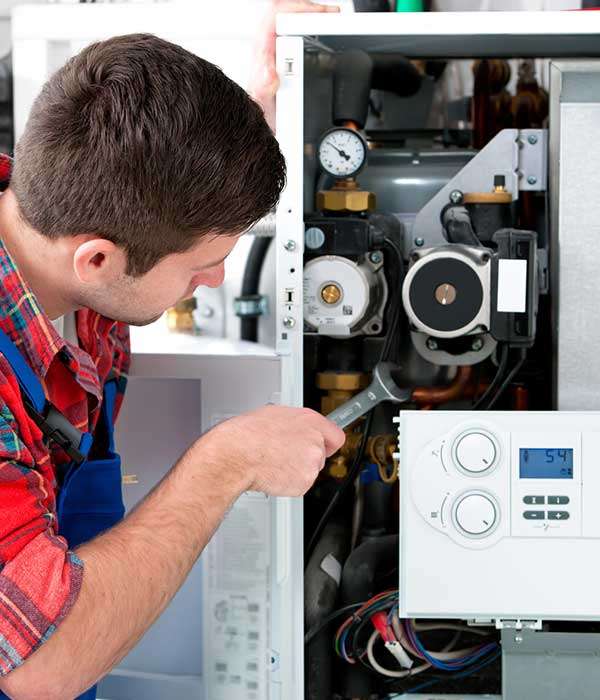
YOUR Licensed HVAC Contractor and Master Plumbers in Michigan
Dion’s Complete Plumbing, Heating & Cooling offers a range of services including plumbing repairs, installations, and maintenance, heating repairs and installations, air conditioning repairs and installations, indoor air quality solutions, and more.
We can help with common plumbing problems such as leaky pipes, clogged drains, water heater issues, and more.
Dion’s Complete Plumbing, Heating & Cooling can handle a range of water heater repairs, including pilot light issues, thermostat problems, heating element failures, and more.
Dion’s Complete Plumbing, Heating & Cooling can perform a variety of installations, including plumbing fixtures, water heaters, air conditioning units, furnaces, and more.
It’s recommended that you have your heating and cooling systems serviced annually to ensure they are operating efficiently and safely.
It’s recommended that you have your plumbing system inspected annually to identify any potential issues and ensure everything is working properly.
To prevent pipes from freezing, you should insulate them, keep your home heated to a minimum of 55 degrees Fahrenheit, and let faucets drip to keep water flowing.
It’s recommended that you replace your air filter every one to three months, depending on usage.
There are several types of air filters available, including fiberglass, pleated, washable, and electrostatic.
You can improve indoor air quality by regularly cleaning and vacuuming, using air purifiers, installing UV lights in your HVAC system, and ensuring proper ventilation.

Get expert tips on addressing water heater issues. Contact Dion’s Complete Plumbing, Heating & Cooling at (734) 352-9736 today for professional help.

Discover essential steps to take when faced with a burst pipe. Learn how Dion’s Complete Plumbing, Heating & Cooling in Brighton can assist you.
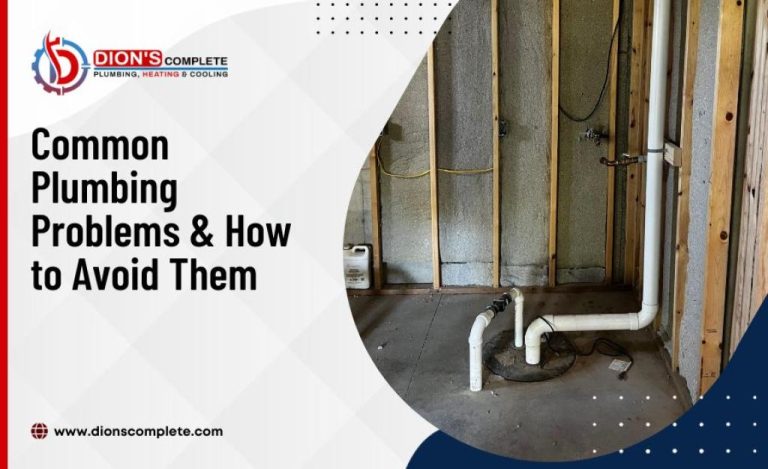
Discover the most common plumbing problems and learn tips on how to avoid them. Trust Dion’s Complete Plumbing, Heating & Cooling for all your plumbing needs.
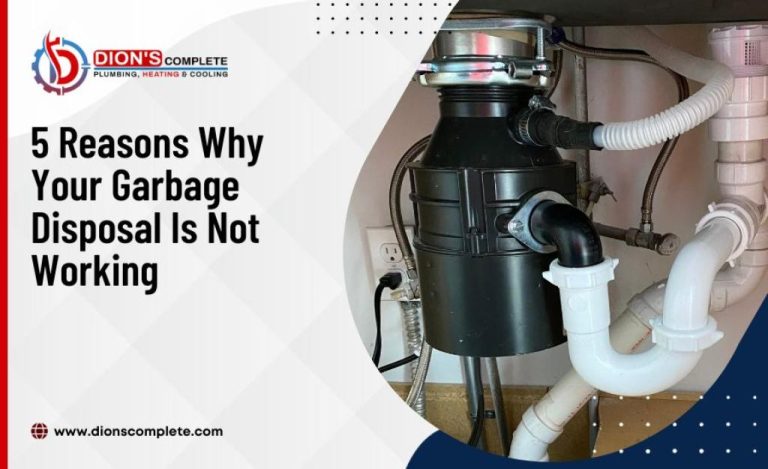
Discover the top 5 reasons why your garbage disposal might not be working and how to address them. From electrical issues to clogs, we cover it all.
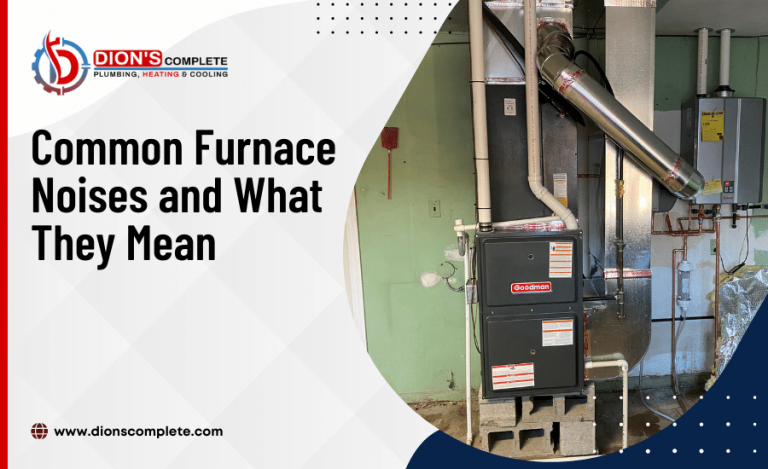
Uncover the mystery behind your furnace’s noises. Learn to distinguish between normal sounds and warnings, ensuring a cozy, safe winter.
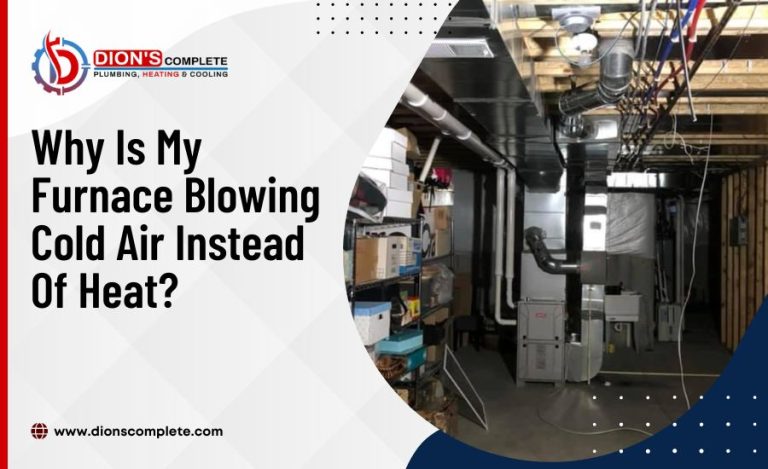
Explore the common reasons behind furnaces blowing cold air, from pilot light issues to thermostat settings.
About Us
We offer heating, cooling, and plumbing services for residential clients.
Heating Services
Cooling Services
Quick Links
WE SERVICE THROUGH OUT SOUTH EAST MICHIGAN!
Ann Arbor, Rochester Hill, Royal Oak, West Bloomfield, Bloomfield Hills, Dexter, Howell, Brighton, Novi, Ypsilanti, Saline, Milan, Tecumseh, Birmingham, Fenton, Flushing, Grosse Pointe, Northville, Plymouth, Troy, Beverly Hills AND MORE!!